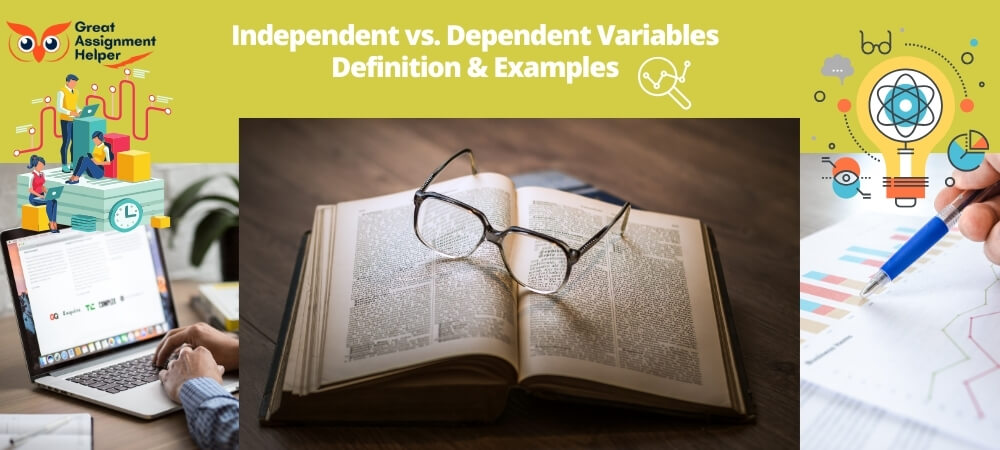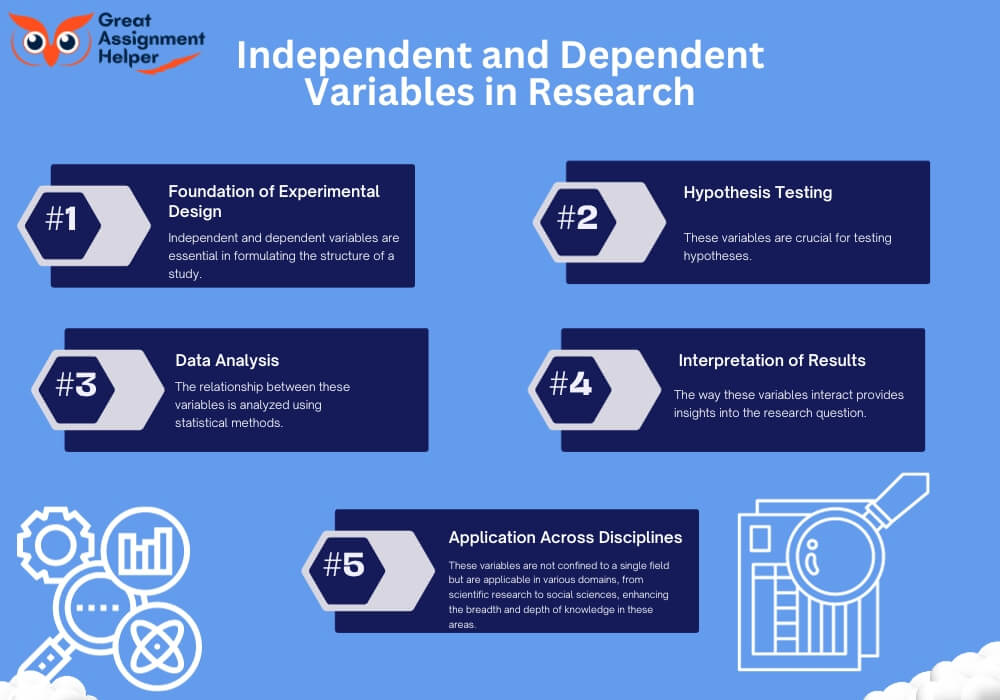
Listen To This Blog
Introduction
In the dynamic field of research, the concepts of independent and dependent variables stand as pivotal elements. These variables form the backbone of experimental design, influencing how studies are conducted and interpreted. Grasping the roles and interactions of these variables is crucial for anyone delving into scientific or social research. This introduction aims to shed light on the essence of independent and dependent variables, guiding you through their definitions, differences, and the significant impact they have in the vast landscape of research methodologies.
What is an Independent Variable?
An independent variable is a fundamental component in research and scientific studies. It represents the factor that is deliberately altered or selected by the researcher to observe its effect on another variable, known as the dependent variable. This variable stands independently, meaning its variation is not caused by other variables in the study. For instance, in an experiment examining the growth rate of plants, the amount of sunlight they receive can be an independent variable. The researcher manipulates this variable to assess its impact on plant growth, the dependent variable. Understanding and correctly identifying the independent variable is crucial for the integrity and accuracy of any experimental research. It forms the basis for hypothesis testing, allowing researchers to explore cause-and-effect relationships within their studies.
Types of Independent Variables
Independent variables in research can be broadly categorized into two main types, each playing a distinct role in experimental design and analysis.
- Manipulable Independent Variables: These are variables that researchers can directly alter or control within the context of an experiment. For example, in a clinical trial testing a new drug, the dosage of the medication is a manipulable independent variable. Researchers change the dosage levels to observe the effects on patient health outcomes.
- Non-Manipulable Independent Variables: These refer to variables that cannot be altered by the researcher but are still critical for the study. They often include inherent characteristics like age, gender, or ethnicity. In social science research, for instance, a researcher might study the impact of age on technology adoption, where age is a non-manipulable independent variable.
Understanding these types helps researchers in designing their studies, ensuring that they appropriately account for and analyze the variables that can influence their results.
What is a Dependent Variable?
A dependent variable is a key element in research, representing the outcome or effect that is being studied and measured. It's called 'dependent' because its value depends on the changes made to the independent variable. For example, in a study exploring the effect of nutrition on academic performance, the academic performance is the dependent variable. It's what the researcher measures after manipulating the independent variable, which in this case could be different types of nutritional plans. The dependent variable is crucial for testing hypotheses and drawing conclusions in research. It provides tangible data that researchers analyze to understand the relationship between variables. Accurately identifying and measuring the dependent variable is essential for the validity of the research findings, as it reflects the effects of the variables being tested.
Independent vs Dependent Variable
|
Aspect |
Independent Variable |
Dependent Variable |
|---|---|---|
|
Definition |
A variable that is manipulated or varied by the researcher to observe its effects. |
A variable that changes in response to the manipulation of the independent variable. |
|
Role in Research |
Acts as the cause or the factor being tested. |
Serves as the effect or outcome being measured. |
|
Example |
In a study on plant growth, the amount of water given to the plants. |
In the same study, the growth rate of the plants. |
|
Purpose |
To establish cause-and-effect relationships by altering it and observing changes. |
To observe and measure the effects of changes in the independent variable. |
|
Dependency |
Does not depend on other variables in the study. |
Depends on the changes made to the independent variable. |
|
Control |
Controlled or altered by the researcher. |
Not directly controlled by the researcher but observed for changes. |
|
In Research |
The variable that is hypothesized to influence the dependent variable. |
The variable that is hypothesized to be influenced by the independent variable. |
This table provides a clear distinction between independent and dependent variables, highlighting their roles, definitions, and functions in research.
Independent and Dependent Variables in Research
In the realm of research, independent and dependent variables play pivotal roles. Here are key points highlighting their significance:
- Foundation of Experimental Design: Independent and dependent variables are essential in formulating the structure of a study. The independent variable is what the researcher changes or controls, while the dependent variable is what gets measured in response.
- Hypothesis Testing: These variables are crucial for testing hypotheses. Researchers propose how an independent variable might affect a dependent variable and then conduct experiments to validate or refute their hypotheses.
- Data Analysis: The relationship between these variables is analyzed using statistical methods. This analysis helps in understanding the cause-and-effect dynamics within the study.
- Interpretation of Results: The way these variables interact provides insights into the research question. The dependent variable's response to changes in the independent variable can lead to significant conclusions and discoveries.
- Application Across Disciplines: These variables are not confined to a single field but are applicable in various domains, from scientific research to social sciences, enhancing the breadth and depth of knowledge in these areas.
Dependent and Independent Variables Examples in Research

Understanding the application of dependent and independent variables in research is crucial. Here are examples from two distinct fields - psychology and science - presented in a table format for clarity.
Independent Variable in Psychology
|
Research Topic |
Independent Variable |
Dependent Variable |
Description |
|---|---|---|---|
|
Effect of Sleep on Memory |
Amount of Sleep (hours) |
Memory Test Scores |
In this study, the independent variable is the amount of sleep participants get. The dependent variable is their performance on memory tests, which is expected to vary based on the sleep duration. |
|
Impact of Group Therapy on Depression |
Type of Therapy (Group vs. Individual) |
Depression Levels |
Here, the type of therapy is the independent variable. The dependent variable is the level of depression in participants, measured before and after the therapy sessions. |
What is an Independent Variable in Science
|
Research Topic |
Independent Variable |
Dependent Variable |
Description |
|---|---|---|---|
|
Plant Growth and Fertilizer Type |
Type of Fertilizer Used |
Growth Rate of Plants |
In this agricultural study, the independent variable is the type of fertilizer applied to the plants. The dependent variable is the growth rate of the plants, which is measured to assess the effectiveness of different fertilizers. |
|
Temperature's Effect on Solubility |
Water Temperature (°C) |
Solubility of a Substance |
The independent variable is the temperature of the water, which the researcher changes. The dependent variable is the solubility rate of a substance in water, observed at different temperatures. |
These examples illustrate how independent and dependent variables are utilized in different research contexts, providing a framework for experimental design and hypothesis testing across various disciplines.
Wrapping Up
In conclusion, understanding the roles of independent and dependent variables is a cornerstone in crafting a well-structured research paper. These variables not only guide the direction of your study but also ensure clarity and precision in your findings. For students and researchers looking to deepen their grasp of these concepts or seeking assistance in their academic endeavors, platforms like GreatAssignmentHelper offer valuable support. With resources and expertise in various fields, such online assignment helper platforms can be instrumental in enhancing the quality and effectiveness of your research work, paving the way for academic success.

